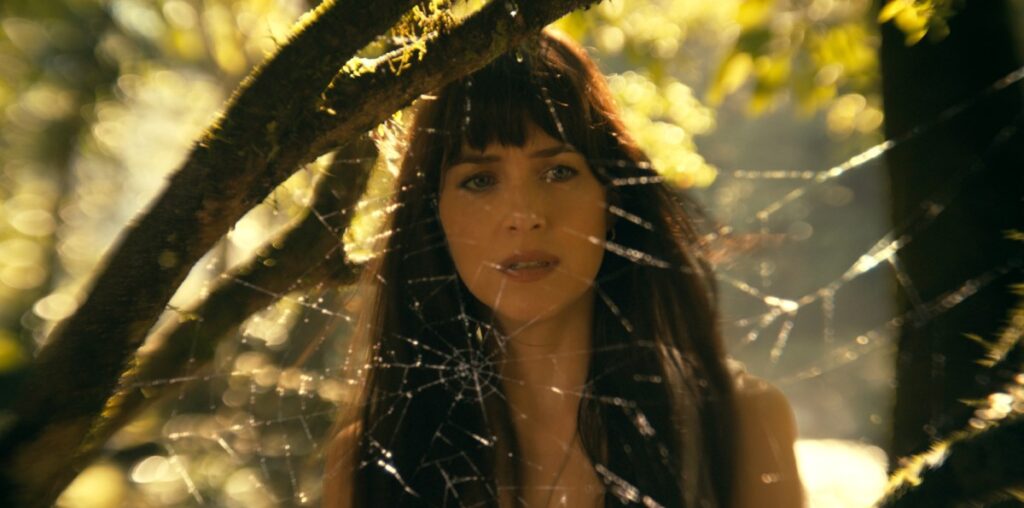Right now I have an unlimited supply of content at my fingertips; I’m subscribed to a few streaming services, full of more programming than I could possibly watch in my mortal lifespan. I have a backlog of games piled up on my PC and a stack of unread books, and I’ve also fallen behind on my hobbies. It feels impossible to catch up, especially since there’s a constant flow of new stuff, all designed to be as easily consumed as possible. This is the slop era of entertainment, where quality has been sacrificed and quantity is king.
These days, the term “slop” covers a wide range of media, from TikToks where an AI narrates a post from /r/AmITheAsshole all the way up to big Disney productions like The Acolyte. That’s a wide range, but it makes sense when you consider that slop refers to content that is meant to be consumed, not examined, critiqued, or unpacked. This includes the “no thoughts, head empty” ritual of lying in bed, staring blankly at an endless stream of short videos as your thumb occasionally twitches like a rat hitting the button for its dopamine snack.
But slop also refers to corporate ventures, even ones where many of the individual artists and creators involved may have had noble intentions. Consider the Marvel Cinematic Universe and its endless stream of shows, dropped plot points originally teased in post-credits stingers, and a constant string of Member Berries to previous, more popular iterations of the same franchise. Slop slides off your brain, even as you watch it. Slop rejects deeper thoughts or attempts at interpretation, going for the easiest payoffs. Much like jingling keys in front of an infant, slop can have a certain amount of spectacle or excitement, but any rough edges have been sawn off. Slop works best on a second monitor, enjoyed in the background while doing something else — perhaps consuming even more slop, for maximum brain-off delight.
Red Letter Media, a popular film YouTube channel, briefly hosted a satirical program called The Nerd Crew, a mocking take on the big fan productions built to hype up corporate properties. In one episode, Jay Bauman, one of the faces of RLM, responds to an inquiry with the line: “Don’t ask questions. Just consume product and get excited for next product.” Such is the perception of corporate slop; it’s media that’s created by committee out of a sense of obligation to long-standing franchises.
This results in more than just a few bad scores on Rotten Tomatoes; the VFX industry is being crushed by short production cycles and demands for big, bombastic battles. The human beings who create these massive light-beam battles are subject to relentless crunch and instability. We can see the effect of pushing for more content at any cost in gaming as well; many publishers and developers behind big, constantly updating online titles have been subject to layoffs and shutdowns.
The label of slop implies a certain disrespect for the audience, an expectation that once the slop hits the trough, the little piggies will come and feast regardless of how good it is. That’s not quite fair, however, as all of us enjoy a little popcorn entertainment once in a while. New audiences, some of whom are turned off by the constant stream of big blockbuster products, are returning to older shows like Columbo, House, or Friends, all of which are available in the streaming age. Even older comfort shows can be like cotton candy; enjoyable in the moment but with no lasting enrichment. There’s nothing wrong with a guilty pleasure, and not everything needs to be an intellectual pursuit.
The rise of AI and content farms online, however, has made the presence of slop in our media diet much more apparent. I’ve lost several evenings to the endless scroll, getting lost in short videos of cute huskies, random fandom fun facts, and cake recipes. The algorithm has been so well trained to create an endless well of stuff to draw our attention, all captivating in the moment but utterly forgettable after just a few minutes. Before long, the feed starts offering up AI voices recapping the events of a movie scene, or a guy tonelessly reading from a 40K wiki over AI-created images of Space Marines and Imperial Guard.
Slop media invites slop criticism. It’s no secret that negativity delights the algorithm much more than thoughtful commentary. For every inoffensive corporate piece of slop we get, there’s an endless stream of social media controversies, YouTube videos about the evil woke, and explainer videos that laboriously pore over minute details for a “gotcha” moment.
The rise of slop has forced me to become more discerning with my own media choices. I do not care if something is low-budget or ugly; in fact, that’s becoming an increasing draw to me. I’ve set many AAA titles aside for weird little indie gems, I’ve started following media critics who I respect and trust to give me recommendations before I dive into a new show, and I find myself craving sincerity above all else.
I don’t claim to be more virtuous for my media consumption choices, but I do think it’s a better habit to adopt. The more social media tries to pull me in, the more I reflexively pull back. I still have my guilty pleasures and cotton-candy shows, but I’m careful not to fall down a rabbit hole. I’m on slop watch, and if the media landscape continues this way, I expect the term to only become more prevalent and relevant in our discourse.



